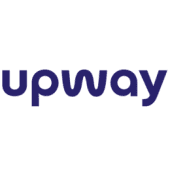Europe’s startup scene is one that reflects innovation and an embrace of new ideas and pursuits from right across the continent. Part of what makes Europe so special is perhaps this aspect – that regardless of whether an innovator is from Belfast or Bucharest or somewhere in between, they have a chance to be a part of shaping the future through tech.
That being said, there is no doubt that some cities stand out as powerhouses, some as hubs and some as up-and-coming startup star cities. Traditionally, Paris, Berlin and London have been the driving forces of the European startup ecosystem. Three capitals of three major European economies, these are three cities that have a lot to teach and share with other hubs and cities across the continent. Here, we take a look at what makes these cities such powerhouses, and how they each individually inspire growth.
Berlin
Berlin has become a leading destination for the startup scene in both Germany and Europe and about 22% of all German startups were established in this capital city. The ecosystem benefits from Berlin’s diversity and the big number of universities. Moreover, the startup ecosystem gains policy support from the state: the framework for the city’s innovation policy is provided by both the Berlin and the German government. Within this legal framework, the city has 8 innovation support programs which have helped the city to become the centre of innovation and business.
The city actively supports startups in the early stage and pre-startup period, which is crucial to making the city a hub of innovation and exciting business development. One of the key entities supporting these startups is Berlin Startup Scholarship, which provides financial support to selected founders of technology-based startup prototypes over six to twelve months to help them enter the market. Selected teams receive a scholarship to help finance launching plans. This project is a part of the European Social Fund and will support more than 1,500 individuals between 2014 and 2023.
Since 1997 the investment branch of Investitionsbank Berlin state-owned investment bank has invested more than €250 million in the city. This program subsidises 50% of the costs of innovative startups in Berlin (things like getting resources, office space and so on). For example, in 2021 183 startups were supported with an approval volume of €9 million. Given that early-stage startups are often hit by overwhelming costs, and this can be a major barrier to success, these cash injections can prove critical in supporting startup development.
Some Berlin-based startups we’re watching:
 Ecoligo: Founded in 2016, Ecoligo recently scored €10 million and it’s impressing us with its approach to green tech and fueling a global energy transition. The impact-led investment implements solar-as-a-service projects in emerging markets, enabling companies to access sustainable sources of energy. The projects are enabled by committed and environmentally conscious investors who want to fight the climate crisis with their targeted investments in solar projects while earning significant interest.
Ecoligo: Founded in 2016, Ecoligo recently scored €10 million and it’s impressing us with its approach to green tech and fueling a global energy transition. The impact-led investment implements solar-as-a-service projects in emerging markets, enabling companies to access sustainable sources of energy. The projects are enabled by committed and environmentally conscious investors who want to fight the climate crisis with their targeted investments in solar projects while earning significant interest.
 Grover: Founded in 2015, Grover is one of Berlin’s most emblematic unicorns. The consumer-tech subscription platform is a pioneer of the circular economy in Europe. It raised €270 million and we also hosted founder Michael Cassau on our podcast. Grover’s service allows its users to keep, switch, buy, or return products depending on their individual needs and budget.
Grover: Founded in 2015, Grover is one of Berlin’s most emblematic unicorns. The consumer-tech subscription platform is a pioneer of the circular economy in Europe. It raised €270 million and we also hosted founder Michael Cassau on our podcast. Grover’s service allows its users to keep, switch, buy, or return products depending on their individual needs and budget.
 Zenjob: One startup disrupting recruitment is Zenjob. Founded in 2015, the platform envisions a world where people have control over their working lives. To this end, the fast-growing startup has created a tech solution that shapes the Future of Work, finding the best candidates for jobs from a pool of tens of thousands within seconds. Earlier this year, Zenjob raised €45 million to boost its expansion across Europe and founder & CEO, Fritz Trott spoke at this year’s EU-Startups Summit.
Zenjob: One startup disrupting recruitment is Zenjob. Founded in 2015, the platform envisions a world where people have control over their working lives. To this end, the fast-growing startup has created a tech solution that shapes the Future of Work, finding the best candidates for jobs from a pool of tens of thousands within seconds. Earlier this year, Zenjob raised €45 million to boost its expansion across Europe and founder & CEO, Fritz Trott spoke at this year’s EU-Startups Summit.
Paris
Paris has one of the most significant startup ecosystems in Europe, which includes about 12k startups. Fundamental to Paris’s startup savvy is the support given by the French state to its capital city’s innovation prowess.
The French state actively encourages the development of tech companies and has put aside big sums of money to make it happen. In his re-election bid, Emmanuel Macron presented the €30 billion France 2030 plan as part of his vision to make France a global innovation hub and a central focal point for innovators determined to change tomorrow’s society. Approximately €15 billion of this plan is dedicated to startups and is an unparalleled state commitment to startup development. Moreover, in 2021 the government launched the Scale-Up Europe project that unites founders, investors, and researchers to make Europe a tech industry leader. It’s not all about money when it comes to startups. Access to mentoring and networks is just as important, and it seems the French state is aware of this and prepared to act accordingly.
The link between politics and the French startup frenzy continues. In 2022 corporate tax has been decreased to 25%, making France more attractive for startups – both international and domestic ones. Tech companies also benefit from a tax credit equivalent to 30% of their initial investment, up to €100 million per year. Moreover, the French government a unique visa program for technology entrepreneurs in 2017, a simplified scheme for non-EU startup employees, founders, and investors to obtain a residence permit for France. So, the capital city will certainly remain an attractive hotspot. We took a deep dive into France’s ecosystem at the start of the year and have been enjoying seeing how things have unfolded. It’s been another big year for France with lots of new unicorns and even centaurs arising.
Paris is home to 21 top-tier business schools and a top engineering university. And universities of new types, such as School 42 which is fostering homegrown talent and innovation. As business school graduates are reported to be increasingly leaning on the entrepreneurial side, there is a promising pool of highly skilled talent with IT, engineering, and management backgrounds available in Paris, and they’re primed to keep developing new products, solutions and companies.
This is all before even mentioning the famous La French Tech, a truly unique entity that brings together startups, investors, policymakers and community builders under one roof. Paris is home to La French Tech, which has been home to 120 startups and offers the renowned Next40 development program.
Some Paris-based startups we’re watching:
 Upway: Founded in 2021, Upway runs a platform for the second-hand purchase, reconditioning and resale of electric bikes – and it raised €23 million at the start of the summer. The company is helping to fuel a new eco-friendly way to travel. Since the start of the year, Upway has grown its sales of electric bikes by 600%, doubled the size of its team and commenced its European expansion by launching in Belgium in March. However, they are just getting started and, with this new funding plan to launch in Germany, the Netherlands and the United States by the end of 2022.
Upway: Founded in 2021, Upway runs a platform for the second-hand purchase, reconditioning and resale of electric bikes – and it raised €23 million at the start of the summer. The company is helping to fuel a new eco-friendly way to travel. Since the start of the year, Upway has grown its sales of electric bikes by 600%, doubled the size of its team and commenced its European expansion by launching in Belgium in March. However, they are just getting started and, with this new funding plan to launch in Germany, the Netherlands and the United States by the end of 2022.
 Back Market: Starting 2022 with a €449 million capital boost, Back Market has consolidated itself as one of France’s most valuable startups, with a valuation of over €5 billion. Launched in 2014, it’s one of Europe’s leading dedicated renewed tech marketplaces. The startup brings high-quality professionally refurbished electronic devices and appliances to over 6 million customers in 16 countries.
Back Market: Starting 2022 with a €449 million capital boost, Back Market has consolidated itself as one of France’s most valuable startups, with a valuation of over €5 billion. Launched in 2014, it’s one of Europe’s leading dedicated renewed tech marketplaces. The startup brings high-quality professionally refurbished electronic devices and appliances to over 6 million customers in 16 countries.
 Gourmey: Based in Paris, Gourmey is creating cultivated meat, giving us protein sources produced in a lab rather than coming from an animal. The aim is to build a better, more sustainable food system through innovation, tech and biology all whilst not compromising on taste. Founded in 2019, the startup recently raised €48 million. Check out our interview with the CEO and co-founder, Nicolas Morin-Forest at the start of this year.
Gourmey: Based in Paris, Gourmey is creating cultivated meat, giving us protein sources produced in a lab rather than coming from an animal. The aim is to build a better, more sustainable food system through innovation, tech and biology all whilst not compromising on taste. Founded in 2019, the startup recently raised €48 million. Check out our interview with the CEO and co-founder, Nicolas Morin-Forest at the start of this year.
London
London is the third largest tech hub in the world, the second in the fintech industry, and the fourth in edtech. It’s reported that almost half of all edtech investment into Europe goes to the U.K. Moreover, more than a third of U.K. investors are located in the capital, and the amount of investment available to startups is growing. In 2021 London became the unicorn capital of Europe because of 75 unicorn companies and it’s a market famous the world over for its economic prowess, maturity and stability..
The city of London supports tech companies through initiatives such as the “Resilience Fund,” aiming to solve some of the city’s most pertinent problems, or the Business Growth Program, which is orientated towards early-stage startups that employ no more than ten people. The program also created an accelerator for social impact companies working within the UN agenda.
London also benefits from an extremely high concentration of highly skilled talent – both home-grown in the city’s prestigious universities, and also imported from around the world, thanks to the city’s global reputation. Whilst the UK has been undergoing some political and economic turmoil of late, the city is remaining a hub of exciting innovation and in 2021 the city attracted over €11 billion in tech investment—more than double Berlin and Paris combined.
Home to a supportive and varied network, it’s the ability to make connections that makes London thrive. It’s been an economic powerhouse for generations and this has built an incredibly powerful ecosystem that’s pretty resilient to change and disruption.
Some London-based startups we’re watching:
 Lottie: Launched in 2021, Lottie already has a valuation of about €52 million, made a number of strategic acquisitions and its scaling at a hair-raising pace. The later living marketplace endeavours to radically transform elderly care. The digital platform was launched as a care home comparison website that only works with the most vetted care providers, ensuring that care seekers find the right level of care at a fair price. It now also includes retirement living and is expanding.
Lottie: Launched in 2021, Lottie already has a valuation of about €52 million, made a number of strategic acquisitions and its scaling at a hair-raising pace. The later living marketplace endeavours to radically transform elderly care. The digital platform was launched as a care home comparison website that only works with the most vetted care providers, ensuring that care seekers find the right level of care at a fair price. It now also includes retirement living and is expanding.
 HumanForest: Founded in 2019, the company raised €1.4 million via Crowdcube in 2020, launched in 2021 and has since partnered with the likes of Deliveroo as it provides sustainable and affordable shared e-bikes across London to fuel an e-mobility movement in the capital. Built with sustainability at its core, using innovative technology to improve battery life and reduce waste, rental e-bikes are some of the most sustainable out there. We chatted with Caroline Seton, Co-Founder and Head of Growth earlier this year.
HumanForest: Founded in 2019, the company raised €1.4 million via Crowdcube in 2020, launched in 2021 and has since partnered with the likes of Deliveroo as it provides sustainable and affordable shared e-bikes across London to fuel an e-mobility movement in the capital. Built with sustainability at its core, using innovative technology to improve battery life and reduce waste, rental e-bikes are some of the most sustainable out there. We chatted with Caroline Seton, Co-Founder and Head of Growth earlier this year.
 Zilch: One of Europe’s most acclaimed duocorns, Zilch is one of Europe’s fastest-growing fintechs and recently reached more than €153 million in its Series C funding. Founded in 2018, and launched in September 2020, the company has been rewriting BNPL with a D2C approach. Its unique platform utilises Open Banking Technology whereby they only lend a user what they can afford to pay back, preventing problematic debt.
Zilch: One of Europe’s most acclaimed duocorns, Zilch is one of Europe’s fastest-growing fintechs and recently reached more than €153 million in its Series C funding. Founded in 2018, and launched in September 2020, the company has been rewriting BNPL with a D2C approach. Its unique platform utilises Open Banking Technology whereby they only lend a user what they can afford to pay back, preventing problematic debt.
This article was created with contribution from Patricia Allen. Are there other cities we should spotlight as great European startup powerhouses? let us know!




